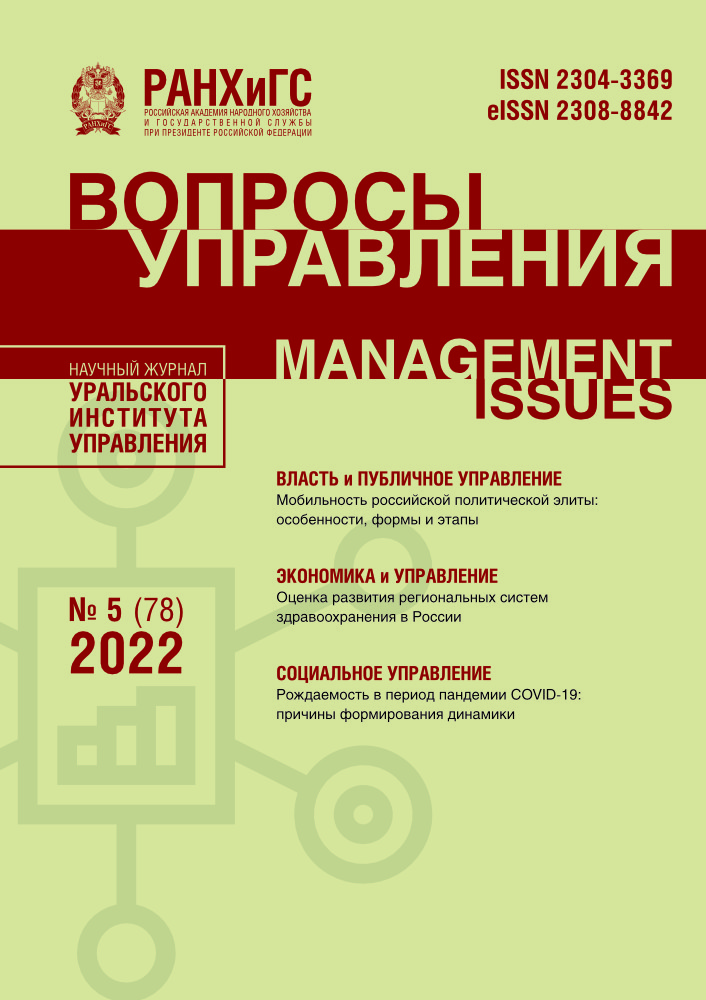A MODEL OF IMPROVING SME MUNICIPAL SUPPORT EFFICIENCY
DOI:
https://doi.org/10.22394/2304-3369-2022-5-47-64Keywords:
municipal SME support, methodological tools, performance assessment, project managementAbstract
The article is devoted to the issue of improving the efficiency of municipal support of small and medium businesses (SMEs) development based on bringing the existing methodological tools for its implementation in compliance with modern management technologies, relevant to the opportunities of digital economy transformation and external environment challenges. According to the author’s hypothesis, one of the key factors in solving the problem under research is the elimination of the contradiction between the growing importance of the institution of local government in the multi-level support for SME development in Russia, its role in the sustainable municipal economy development and underdeveloped methods for assessing the efficiency of measures proposed by municipalities and organizational and economic mechanism for their implementation.
Based on the generalized theoretical basis and systematized methodological approaches to solving the problem, the article provides the author’s interpretation of structure and content of the principles for assessing the efficiency of municipal support for SMEs development, proposes a conceptual model of assessing the performance of local governments and gives recommendations to improve the organizational and eco- nomic mechanism for its implementation.
The scientific novelty of the proposed assessment model lies in the construction of its algorithm on the conceptual provisions of a balanced scorecard, adapted to the specifics of the sectoral structure of the territorial economy and to the features of the ecosystem approach to researching the field of municipal SMEs as a socio-economic cluster. Of special concern in the model is the choice of strategic directions for supporting the SME field on the basis of SWOT analysis matrix, developing network interactions between SMEs and large corporations, including monotown enterprises, universities, research centers and other stakeholders. The performance assessment, which reflects the nature of the compliance of the implemented measures with strategic goal-setting, is supposed to be carried out in an organic relationship with the calculation of indicators of the four types of efficiency: economic, budgetary, social, investment, followed by the calculating the integral performance indicator. In order to reduce transaction costs and improve municipal services quality, the article provides grounds for the expediency of improving the organizational and economic mechanism for implementing the proposed model through applying the project approach to the municipal activities.











